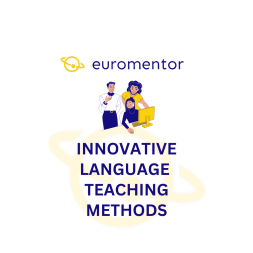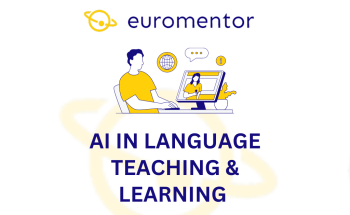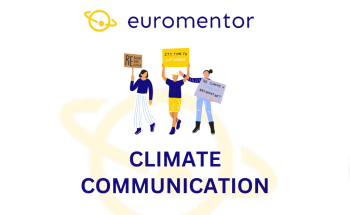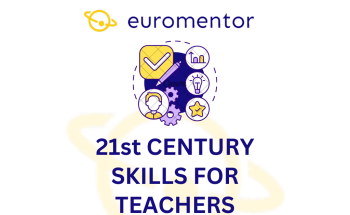
Innovative Approaches in Teaching Foreign Languages: Integrating Digital Tools, AI, Interactive Learning, and Creative Practices (Barcelona, Spain)
This course explores how to effectively integrate digital tools and AI technologies to enhance teaching and learning experiences. You’ll also learn to employ interactive learning techniques and creative practices that engage students and promote deeper language acquisition.
Description
- Innovative Approaches in Teaching Foreign Languages: Integrating Digital Tools, AI, Interactive Learning, and Creative Practices offers an in-depth exploration of contemporary methods designed to revolutionise language instruction. This course provides educators with the tools to integrate advanced digital resources and artificial intelligence into their teaching practices, enhancing both engagement and effectiveness in the classroom. You will investigate the latest digital tools and AI technologies, learning how to apply these innovations to support and personalise language learning.
- The course emphasises the use of interactive learning strategies to foster active participation and collaboration among students. Additionally, it explores creative practices that make language acquisition more stimulating and impactful. You will also analyse various non-formal approaches, such as project-based learning, task-based learning, gamification, and content-based instruction.
- By engaging with practical applications and cutting-edge techniques, educators will gain the skills needed to transform their approach to foreign language teaching. The course aims to equip you with a comprehensive understanding of how to combine technology and creativity to achieve dynamic and successful language learning outcomes.
- Course Category: Arts and Languages
- Related Courses: CLIL Essentials: Content and Language Integrated Learning, Professional English for Effective Erasmus+ Project Management, 21st Century Skills for Teachers
- You can also directly contact us by email: info@euromentor.es
Learning objectives
- Understand Digital Tools and AI: Gain a comprehensive understanding of the latest digital tools and AI technologies applicable to foreign language instruction, including their features and potential benefits.
- Integrate Technology into Teaching: Learn how to effectively integrate digital tools and AI into your language teaching practices to enhance student engagement and personalise learning experiences.
- Apply Interactive Learning Techniques: Develop and implement interactive learning strategies that foster active participation, collaboration, and deeper comprehension among students.
- Incorporate Creative Practices: Explore and apply creative teaching methods that make language learning more engaging and memorable for students.
- Evaluate and Adapt Innovations: Assess the effectiveness of various digital and interactive tools in your teaching context, and adapt them to meet the diverse needs of learners.
- Design Innovative Lesson Plans: Create and implement lesson plans that leverage digital tools, AI, and interactive practices to deliver dynamic and effective language instruction.
- Promote Student-Centred Learning: Employ techniques that promote a student-centred approach, encouraging self-directed learning and critical thinking.
- Demonstrate proficiency in applying various non-formal methods, such as project-based learning, task-based learning, gamification, and content-based instruction, to promote student engagement and language acquisition.
- Foster intercultural competence and promote empathy in language instruction, enabling students to appreciate and respect cultural diversity.
- Reflect on Teaching Practices: Reflect on and evaluate your teaching practices, incorporating feedback and insights to continuously improve and adapt your methods.
Methodology & assessment
Interactive Workshops: The course employs a hands-on approach, featuring interactive workshops, group discussions, and collaborative activities.
Peer Learning: Participants engage in peer-to-peer learning, benefiting from the diverse backgrounds and experiences of their fellow educators.
Practical Application: The training emphasises the practical application of concepts learned.
Assessment:
Formative Assessment: Continuous assessment methods are employed throughout the course, including quizzes, group presentations, and reflective journals.
Final Project: Participants are required to develop a final project that incorporates the knowledge and skills gained during the course.
Course Evaluation: At the end of the course, participants are asked to complete an evaluation form, offering insights into the effectiveness of the training program.
Certification details
Our courses are in line with the Erasmus+ Quality standards for courses under Key Action 1 (learning mobility of individuals) Participants are required to attend a minimum of 80% of the course sessions. Additionally, active engagement and participation in group discussions and practical activities are encouraged to enhance the learning experience.Upon the successful completion of the training course, participants will obtain;
- Certificate of Attendance: includes the name of the participant and the trainer, the location, the dates, learning hours and competences acquired.
- Learning Agreement(s)
- Europass Mobility Document(s)
Pricing, packages and other information
-
Price:400Euro
Informacione shtesë
-
Language:English
-
Target audience ISCED:Primary education (ISCED 1)Lower secondary education (ISCED 2)Upper secondary education (ISCED 3)
-
Target audience type:TeacherHead Teacher / PrincipalTeacher Educator
-
Learning time:25 hours or more
Upcoming sessions
Past sessions
More courses by this organiser

Integrating Artificial Intelligence (AI) into Language Teaching and Learning (Barcelona, Spain)

Climate Communication: Tools for Managing Eco-Anxiety and Taking Positive Action in Schools



